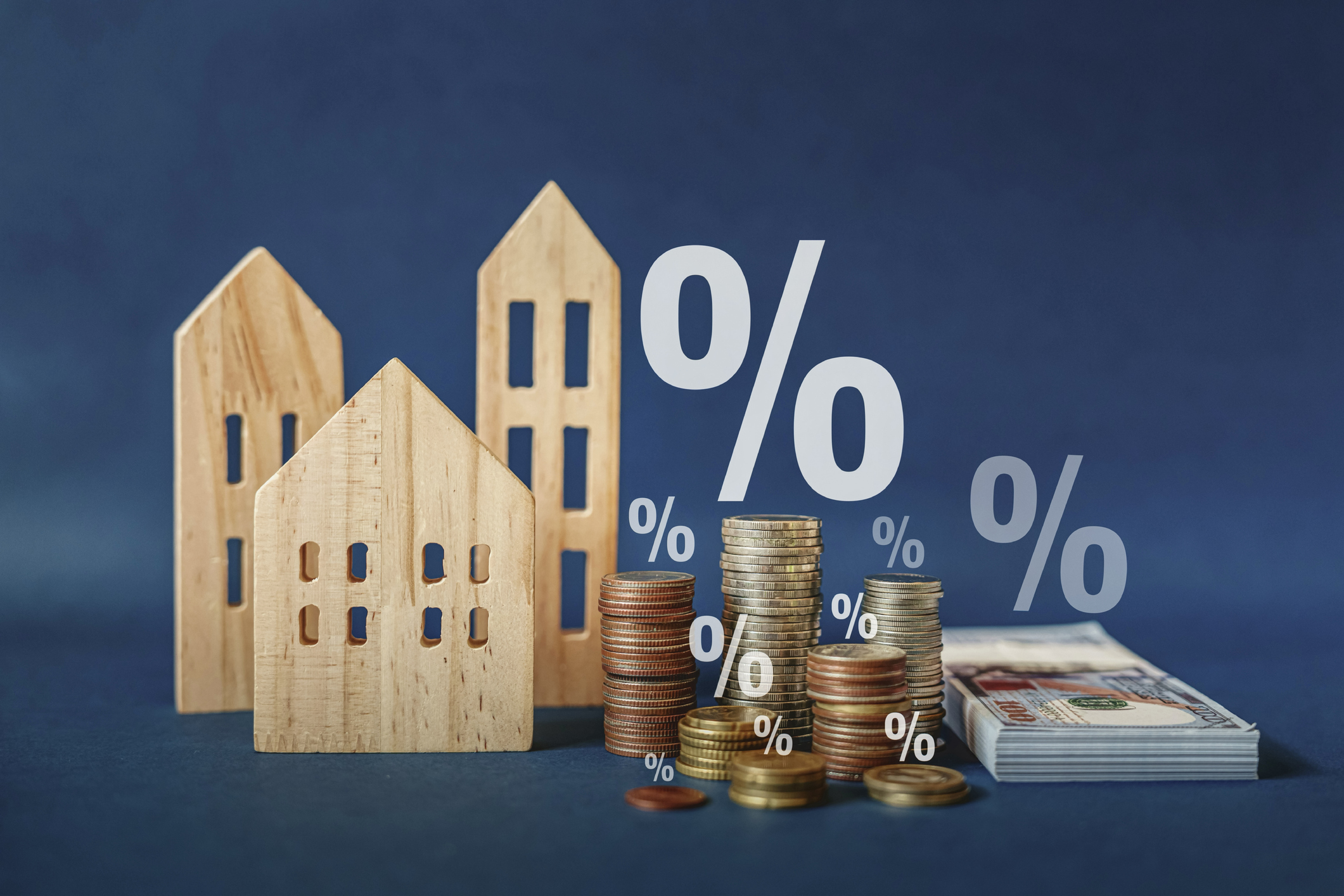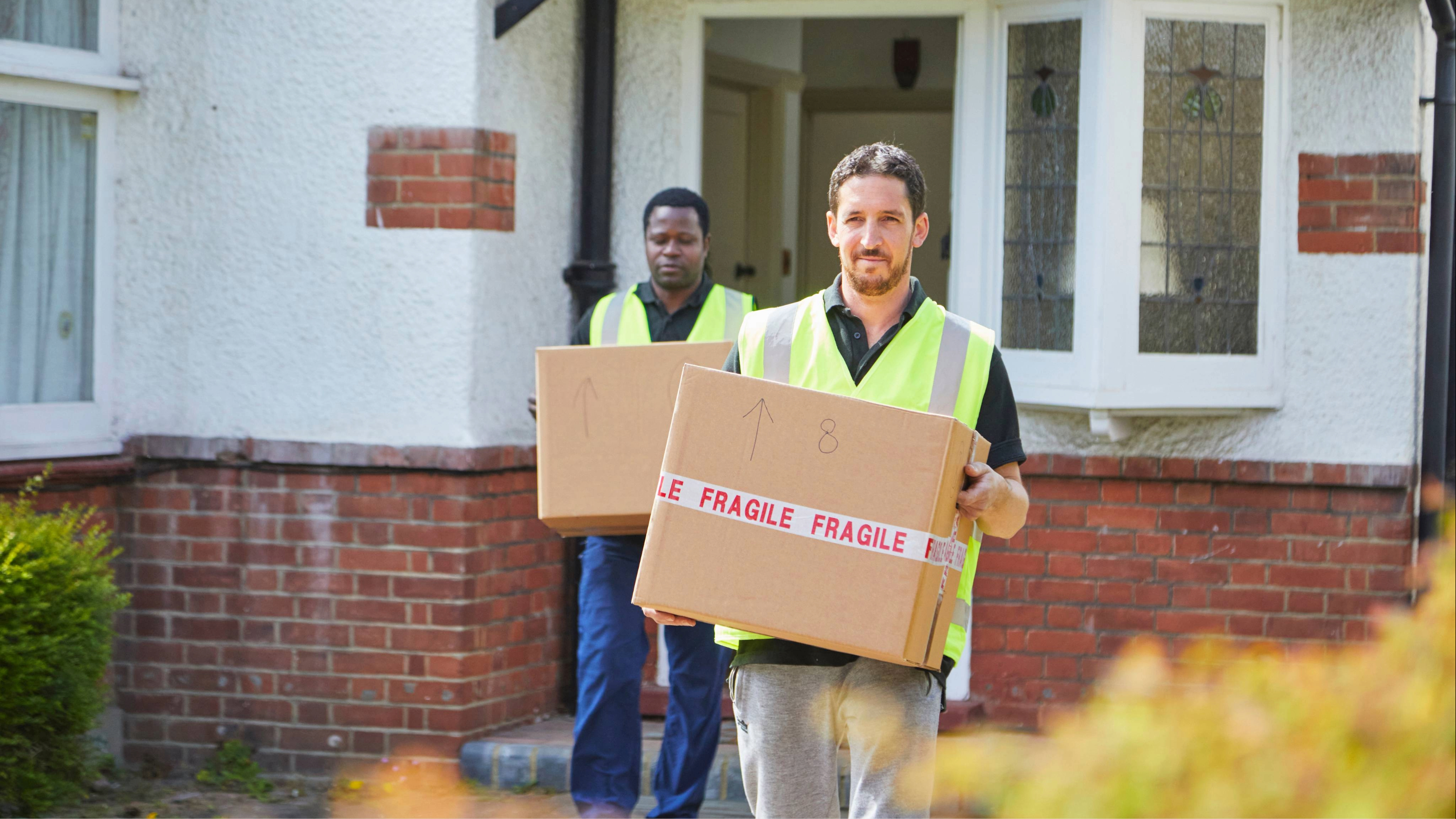What Is Escrow?
Escrow is a type of account used to stash money for a home purchase, held by a third party on behalf of the parties negotiating a deal. Here's how it works.


Profit and prosper with the best of Kiplinger's advice on investing, taxes, retirement, personal finance and much more. Delivered daily. Enter your email in the box and click Sign Me Up.
You are now subscribed
Your newsletter sign-up was successful
Want to add more newsletters?

Delivered daily
Kiplinger Today
Profit and prosper with the best of Kiplinger's advice on investing, taxes, retirement, personal finance and much more delivered daily. Smart money moves start here.

Sent five days a week
Kiplinger A Step Ahead
Get practical help to make better financial decisions in your everyday life, from spending to savings on top deals.

Delivered daily
Kiplinger Closing Bell
Get today's biggest financial and investing headlines delivered to your inbox every day the U.S. stock market is open.

Sent twice a week
Kiplinger Adviser Intel
Financial pros across the country share best practices and fresh tactics to preserve and grow your wealth.

Delivered weekly
Kiplinger Tax Tips
Trim your federal and state tax bills with practical tax-planning and tax-cutting strategies.

Sent twice a week
Kiplinger Retirement Tips
Your twice-a-week guide to planning and enjoying a financially secure and richly rewarding retirement

Sent bimonthly.
Kiplinger Adviser Angle
Insights for advisers, wealth managers and other financial professionals.

Sent twice a week
Kiplinger Investing Weekly
Your twice-a-week roundup of promising stocks, funds, companies and industries you should consider, ones you should avoid, and why.

Sent weekly for six weeks
Kiplinger Invest for Retirement
Your step-by-step six-part series on how to invest for retirement, from devising a successful strategy to exactly which investments to choose.
Escrow is a financial account held by a third party on behalf of two other parties engaged in a transaction. The money is held until certain terms of the agreement — such as buying a home — are finalized.
With real estate deals, you’ll encounter options to use escrow at two points — once when you’re buying the home and again with your mortgage payments. When deciding to use escrow for either of these transactions, it’s important to know how it can protect you and what the downsides are.
- Escrow uses a neutral third party to protect the interests of both buyers and sellers during a transaction.
- Escrow can also be a third-party account meant to hold funds until meeting the contract terms or to pay the property taxes and insurance on a property you own.
- Use of an escrow account is required on government-backed mortgages and conventional mortgages with less than 20% down.
How escrow is used
Whether you realize it or not, you’ve likely used an escrow when putting down the security deposit on a new apartment, selling an item online, or buying a home. In these situations, escrow is a holding account to securely house funds associated with a sale.
From just $107.88 $24.99 for Kiplinger Personal Finance
Become a smarter, better informed investor. Subscribe from just $107.88 $24.99, plus get up to 4 Special Issues

Sign up for Kiplinger’s Free Newsletters
Profit and prosper with the best of expert advice on investing, taxes, retirement, personal finance and more - straight to your e-mail.
Profit and prosper with the best of expert advice - straight to your e-mail.
An impartial third party maintains the account, which protects the interests of both the buyer and seller. Once the buyer and seller meet the terms of their agreement, the money gets released to the seller. If terms aren’t met, the money could be refunded to the buyer.
Escrow could also have a different meaning. When buying a home, or conducting a business merger or acquisition, escrow also refers to a legal agreement employing a third party.
The exchange of documentation and money goes through a neutral escrow service which promotes transparency between the buyer and seller while again, protecting the interests of both. It helps avoid payment disputes and ensures the smooth transfer of money, contracts, and assets.
How does escrow work?
In real estate transactions, escrow takes place when buying or selling a home and when paying your mortgage. Both of those scenarios use escrow differently.
For a home purchase
During a home purchase, escrow accounts store the earnest money deposit from the buyer. An earnest money deposit (also known as a good faith or escrow deposit) is an agreed-upon amount from the buyer proving their commitment to the deal. It’s usually 1% to 2% of the purchase price and compensates the seller if the buyer exits the sale without a legitimate reason.
If the contract goes to closing, the earnest money goes toward the overall closing costs.
This deposit protects the seller from the added costs of putting the home back on the market after the sale falls through. Buyers are also protected since sellers must meet contingencies listed in the sales contract before they see any money.
For example, if the buyer and seller agreed to a home inspection contingency and the basement flooded during a final walkthrough, the seller would need to fix the issues with the basement before receiving payment from the escrow.
For a mortgage
If you’ve made less than a 20% down payment on a conventional mortgage or decided to go with a government-backed USDA or FHA loan, escrow accounts are required. It stores the portion of your mortgage paying for property taxes and insurance on your home. Here’s how it works:
- Your lender calculates annual property taxes and insurance payments on your home and divides it equally across your mortgage payments for the year.
- You review a breakdown of those costs in the closing disclosures before you sign and finalize the home purchase.
- As you pay your mortgage, the escrow collects the predetermined amount in an account and pays your taxes and home insurance on the due dates.
- If the amount of your taxes or insurance undercuts what you’ve paid, your mortgage company will issue a refund for the difference. The opposite can also happen where you receive a bill for the remainder of the cost.
You can use our tool, in partnership with Bankrate, to compare mortgage rates.
Escrow pros and cons
Although there are plenty of benefits to using escrow in real estate transactions, there are also some downsides to consider if you have the choice of whether or not to use one.
Pros:
- Protection from potentially shady sellers. If you were to give your earnest money directly to the home seller, there’s no guarantee that they wouldn’t take the money and run. By storing your money “in escrow” you’re protecting your money.
- Your mortgage lender pays two bills on your behalf. By paying your mortgage with escrow attached, you’re leaving the bill payments up to your mortgage lender instead of paying them yourself.
- Safeguard against tax liens. Since property taxes are automatically paid with the money held in escrow under your mortgage lender, it reduces the risk of missing crucial tax payments on your home.
Cons:
- Increased monthly payment. Adding escrow to your mortgage payment means a larger payment than just a mortgage alone.
- Causes payment fluctuations. The escrow amount could change throughout your loan repayment due to shifts in property tax amounts, insurance premiums, or due to regular cost analysis. This could create fluctuation in your monthly payment which makes it harder to budget.
- Loss of control. Escrow takes tasks off your plate, but it could also reduce the control you have over your money by reserving it before it’s needed to pay tax and insurance bills. If you were planning to use those funds for other purposes, you may need to weigh the costs and benefits of using escrow.
- Inaccurate payment estimates. Your loan servicer makes their best estimate of how much you’ll need to pay in escrow to cover included costs. However, it’s still only an estimate, so it could over or underestimate the amount needed. In an overestimate, you’ve paid too much and have lost potential gains (interest or otherwise) on that money even though you’re refunded for the overage. With an estimate below the true payment amount, you could be faced with an unexpected tax or insurance bill.
Bottom line
Overall, escrow is a choice that could save you time and trouble in paying the more irregular bills on your home. It also acts as protection during the process of buying or selling a home without showing favor to the buyer or seller since the process is managed by a third party.
Related Content
Profit and prosper with the best of Kiplinger's advice on investing, taxes, retirement, personal finance and much more. Delivered daily. Enter your email in the box and click Sign Me Up.

Seychelle is a seasoned financial professional turned personal finance writer. She’s passionate about empowering people to make smart financial decisions by combining 10 years of finance industry experience with solid research and a wealth of knowledge. Seychelle is also a Nav-certified credit and lending expert who has explored money topics such as debt consolidation, budgeting, credit, and lending in her work for publications including GOBankingRates, LendEDU, and Credible.
-
 The New Reality for Entertainment
The New Reality for EntertainmentThe Kiplinger Letter The entertainment industry is shifting as movie and TV companies face fierce competition, fight for attention and cope with artificial intelligence.
-
 Stocks Sink With Alphabet, Bitcoin: Stock Market Today
Stocks Sink With Alphabet, Bitcoin: Stock Market TodayA dismal round of jobs data did little to lift sentiment on Thursday.
-
 Betting on Super Bowl 2026? New IRS Tax Changes Could Cost You
Betting on Super Bowl 2026? New IRS Tax Changes Could Cost YouTaxable Income When Super Bowl LX hype fades, some fans may be surprised to learn that sports betting tax rules have shifted.
-
 We're 62 With $1.4 Million. I Want to Sell Our Beach House to Retire Now, But My Wife Wants to Keep It and Work Until 70.
We're 62 With $1.4 Million. I Want to Sell Our Beach House to Retire Now, But My Wife Wants to Keep It and Work Until 70.I want to sell the $610K vacation home and retire now, but my wife envisions a beach retirement in 8 years. We asked financial advisers to weigh in.
-
 We Inherited $250K: I Want a Second Home, but My Wife Wants to Save for Our Kids' College.
We Inherited $250K: I Want a Second Home, but My Wife Wants to Save for Our Kids' College.He wants a vacation home, but she wants a 529 plan for the kids. Who's right? The experts weigh in.
-
 2026's Tax Trifecta: The Rural OZ Bonus and Your Month-by-Month Execution Calendar
2026's Tax Trifecta: The Rural OZ Bonus and Your Month-by-Month Execution CalendarReal estate investors can triple their tax step-up with rural opportunity zones this year. This month-by-month action plan will ensure you meet the deadlines.
-
 Have You Aligned Your Tax Strategy With These 5 OBBBA Changes?
Have You Aligned Your Tax Strategy With These 5 OBBBA Changes?Individuals and businesses should work closely with their financial advisers to refine tax strategies this season in light of these five OBBBA changes.
-
 Is the Housing Market's 'Lock-In Effect' Finally Starting to Ease?
Is the Housing Market's 'Lock-In Effect' Finally Starting to Ease?As mortgage rates stabilize and fewer owners hold ultra-low loans, the lock-in effect may be losing its grip.
-
 How to Find the Best International Moving Company for Your Big Move Abroad (and Avoid Costly Mistakes)
How to Find the Best International Moving Company for Your Big Move Abroad (and Avoid Costly Mistakes)It's best to use an international moving company to protect your belongings and budget when relocating to another country. Here's how to find a reputable firm.
-
 What to Ask a Contractor Before a Renovation
What to Ask a Contractor Before a RenovationHomeowners should ask these essential questions before hiring a contractor to avoid surprises, protect their investment and keep projects on time and on budget.
-
 I'm 61 and Want a Divorce, but I Worry About My Finances. Should We Live Separately but Stay Married?
I'm 61 and Want a Divorce, but I Worry About My Finances. Should We Live Separately but Stay Married?We asked Certified Divorce Financial Analysts for advice.